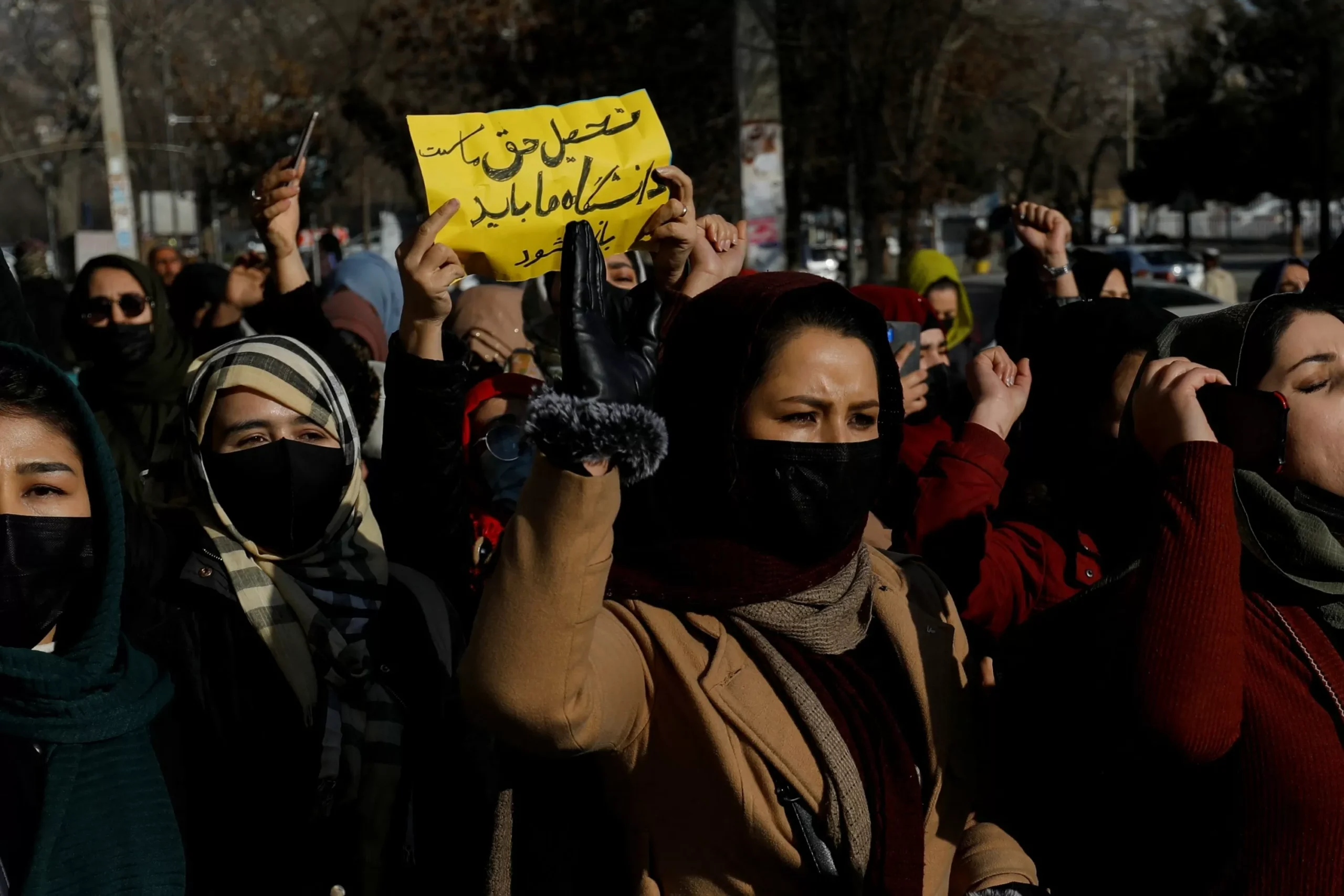Afghanistan’s Taliban government has recently announced a controversial decision to shut down all national and foreign nongovernmental organizations (NGOs) that employ women. This announcement has sparked widespread concern and outrage both within the country and internationally.
The Taliban, a militant group that ruled Afghanistan from 1996 to 2001, has a history of suppressing women’s rights and imposing strict gender roles. This latest move to ban women from working for NGOs is a clear violation of human rights and a major setback for the progress made in women’s empowerment in Afghanistan.
The decision was announced by the Taliban’s Ministry for the Promotion of Virtue and Prevention of Vice, which stated that women should not be working outside their homes and that NGOs should not be promoting “western values” such as gender equality. This is a major blow to the efforts of NGOs in Afghanistan, who have been working tirelessly to improve the lives of women and girls in the country.
NGOs play a crucial role in providing essential services and support to vulnerable communities in Afghanistan, particularly women and children. They have been instrumental in providing education, healthcare, and economic opportunities for women, who have long been marginalized and oppressed in Afghan society. By shutting down these organizations, the Taliban is not only depriving women of their rights but also hindering the progress and development of the country.
The decision has been met with strong condemnation from the international community. The United Nations has expressed deep concern over the Taliban’s decision, stating that it goes against the fundamental principles of human rights and gender equality. The UN has also urged the Taliban to reconsider their decision and to ensure that women’s rights are protected and promoted in Afghanistan.
Many NGOs have also spoken out against the ban, highlighting the crucial role that women play in their organizations and the impact it will have on the communities they serve. These organizations have been working closely with local communities and have gained their trust and support. By shutting them down, the Taliban is not only harming women but also depriving these communities of much-needed assistance.
The ban on women working for NGOs is not only a violation of human rights but also a major setback for the progress made in women’s empowerment in Afghanistan. In recent years, there has been significant progress in increasing women’s participation in the workforce and promoting gender equality in the country. This decision by the Taliban threatens to reverse all the gains made and push women back into the shadows of society.
Furthermore, this decision will have a devastating impact on the economy of Afghanistan. With the majority of the population living below the poverty line, women’s participation in the workforce is crucial for the country’s economic growth. By banning women from working for NGOs, the Taliban is not only harming women but also hindering the country’s development.
It is important to note that the Taliban’s decision is not only harmful to women but also to the entire population of Afghanistan. NGOs play a vital role in providing essential services and support to all communities, regardless of gender. By shutting them down, the Taliban is depriving the people of Afghanistan of much-needed assistance and support.
In conclusion, the Taliban’s decision to ban women from working for NGOs is a major setback for the progress made in women’s empowerment in Afghanistan. It is a violation of human rights and a hindrance to the country’s development. The international community must continue to put pressure on the Taliban to reverse this decision and ensure that women’s rights are protected and promoted in Afghanistan. Women are an integral part of society and their contributions are essential for the progress and prosperity of any nation. It is time for the Taliban to recognize and respect the rights of women and work towards creating a more inclusive and equal society for all.






![Complete BritRail Pass Guide [Types, How to Use It, Pros + Cons]](https://inside-news.uk/wp-content/uploads/2025/06/00221EB4-BCA2-4DBB-6CD4-83DBC37D71FA-120x86.webp)















